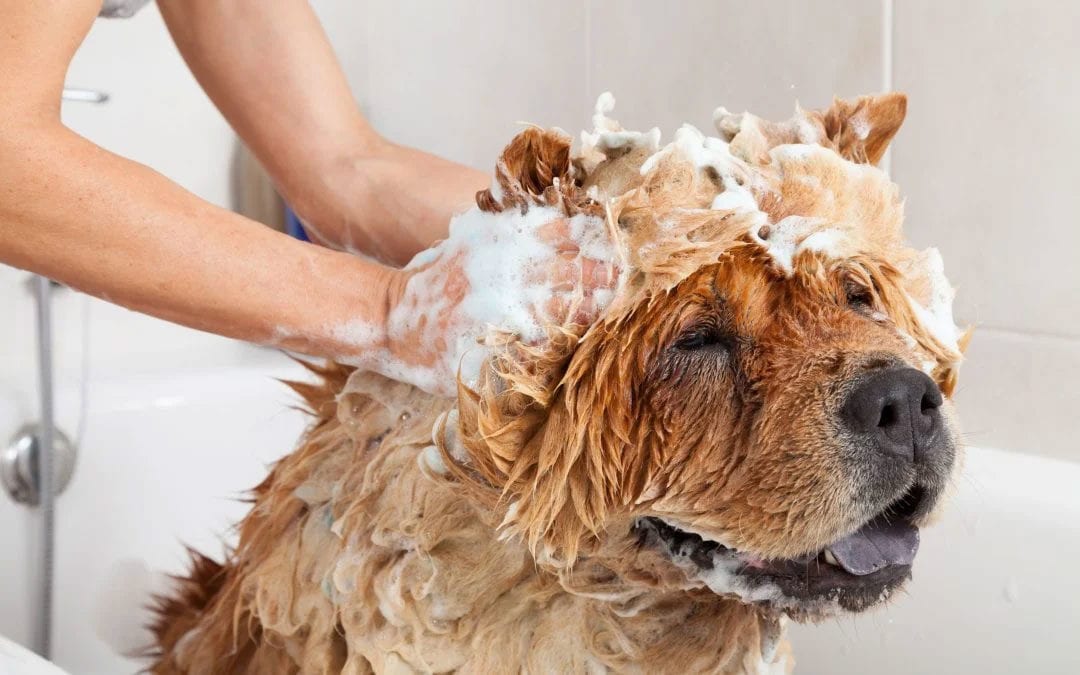Allergies in Companion Animals
If you or someone you know has allergies, you know this time of year means clogged up, sniffly, sneezing misery with every new wave of Spring. People with allergies tend to sneeze and have watery eyes. Dogs and cats increase grooming as well as scratch and lick excessively to try to alleviate their discomfort. This can actually make things worse because these actions can cause further skin irritation and possible infections.
Approximately 10% of dogs and cats experience environmental or food allergies that activate the itch-scratch cycle. Skin barrier defects can cause skin to become dry, another reason for itchiness. Secondary bacterial or yeast infections from scratching- and biting-induced abrasions contribute as well. And of course bites from fleas cause itchiness. The good news is that better oral and topical preventives have reduced itchiness from fleas. There are fewer pets with flea allergies, and those cases tend to be less severe. But if your pet is keeping you awake at night or disturbing you during the day with frantic and frequent biting and scratching at her skin, you and your veterinarian have good options to help your pet ditch that itch. The first step is a thorough history to help determine if it’s an allergy and what might be causing it.
If a food allergy is suspected, your veterinarian may recommend an exclusionary diet trial. Your pet will eat a food that contains a novel protein, or a protein he’s never had before – think kangaroo or whitefish – or one with hydrolyzed protein. To be successful, a diet trial must continue for eight weeks or longer, with no sneaking of your pet table food or treats.
For environmental allergies, such as those to pollens, molds, grasses or other animals, allergy testing can help your veterinarian or a dermatology specialist determine which allergens to incorporate into an allergy vaccine or immunotherapy program. Immunotherapy can be a good long-term management approach, but medications to help reduce itchiness are also available. These include Atopica (cyclosporine), Apoquel and Cytopoint.
Topical treatments such as shampoos, creme rinses, sprays and wipes are also important management tools for itchy skin disease. For pets with barrier defects, meaning the skin is less able to repel invading pathogens and allergens, moisturizing shampoos and other topical agents can help to improve moisture content and barrier function.
Asthma in Companion Animals

Statistically, asthma affects cats far more often than dogs. Unfortunately, the number of animal asthma cases is growing due to their increased exposure to environmental pollutants. Common asthma triggers include:
- Dust
- Grass and tree pollen
- Air pollution such as car exhaust fumes
- Mold and mildew
- Smoke from tobacco products and fireplaces
- Household sprays and chemical solutions, such as hair spray, deodorant, flea spray, and fragrances
- Dust from cat litter
The primary sign of asthma is coughing, which cat owners often mistake as an attempt to cough up a hairball. Coughing and wheezing typically only occur with a flare-up and the pet is fine between bouts. With severe asthma, the animal displays symptoms every day. This may include breathing with an open mouth and constant panting, which occasionally leads to a life-threatening situation.
If you notice any unusual coughing, wheezing, or extreme itchiness, your pet could have asthma or allergies. It’s important to visit Alpine Animal Hospital right away for a thorough evaluation. We will ask several questions about her behavior as well as your living environment to pinpoint a cause of the symptoms. Your dog or cat’s veterinarian will also conduct some medical tests before giving an official diagnosis. With prescription medication and some changes in the environment, pets with asthma or allergies can live a long and healthy life.

